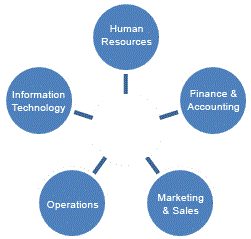 |
| source: Google Image |
Hoho that's really true...I took some time to write this after writing the title of this assignment. Okay, enough with jokes now turn to
SERIOUS MODE ======================>
Actually Madam Salina Safian my IT's lecturer asked each of her student to do summarization about what we have learned each week and post at our blog and THEN I WAS LIKE..............................
Chapter 1: Business Driven Technology
The first thing that you should know is definition of IT
Data, information and business intelligence
IT resources
Actually Madam Salina Safian my IT's lecturer asked each of her student to do summarization about what we have learned each week and post at our blog and THEN I WAS LIKE..............................
.
.
.
.
.
.
.
.
.
.
.
.
.
.
 |
| beep! beep! beep! |
.
.
.
.
.
.
.
.
.
.
.
.
.
Don't laugh it's true you know!!!. I don't have any idea what I want to write and for your information this is my first blog ever BUT it's okay I will try my best to explain the very first chapter in my syllabus titledChapter 1: Business Driven Technology
The first thing that you should know is definition of IT
"A field concerned with the use of technology in managing and processing information"
So, can we relate this definition of IT in terms of business function :--
 |
| Source: Google Image |
Next definition will be MIS which stands for Management Information Systems
"A general name for the business function and academic discipline covering the application of people, technologies and procedures - collectively called information system - to solve business problem"
So, basically MIS is what you can see in the diagram above. Human Resources, Finance and Accounting, Marketing and Sales, Operations and Information Technology.
There are 3 important aspect that we should know in order to learn IT which is:--
Data, information and business intelligence
Data - are values of qualitative or quantitative variables, belonging to a set of item.
Example: Salina, 1972
Information - data converted into a meaningful and useful context.
Example: Date of birth is 1972
Business Intelligence - applications and technologies that are used to gather, provide, access to and analyze data and information to support decision-making efforts
Example: Make decision
IT resources
- People
- Information technology to work with
- Information
IT cultures
Informational Functional Culture
employees use info as means of exercising influence or power over others.
Informational Sharing Culture
employees across departments trust each other to use information (improve performance)
Informational Inquiring Culture
employees across departments search for info better understand the future and align with new trends.
Informational Discovery Culture
employees across departments are open to new insight and seek ways to create competitive advantages.

No comments:
Post a Comment